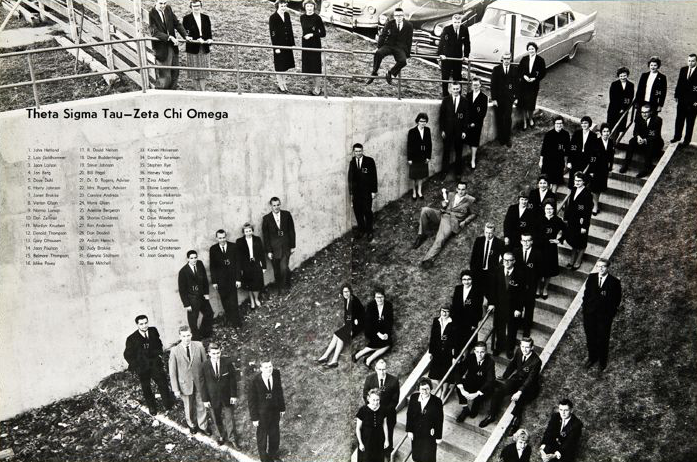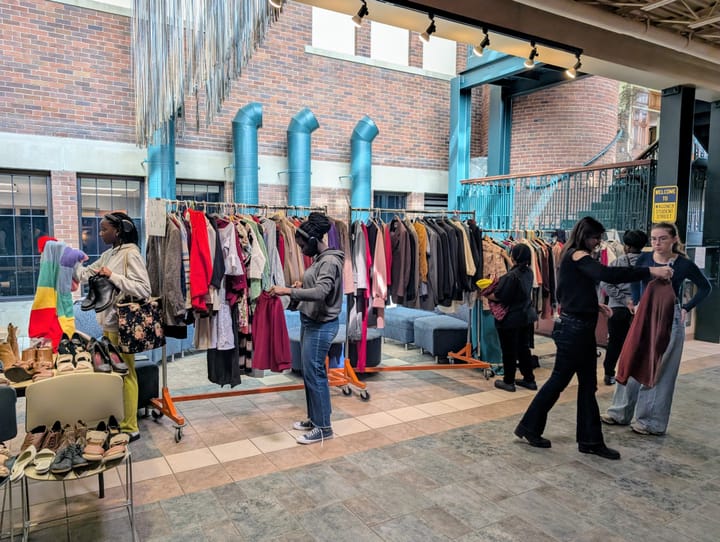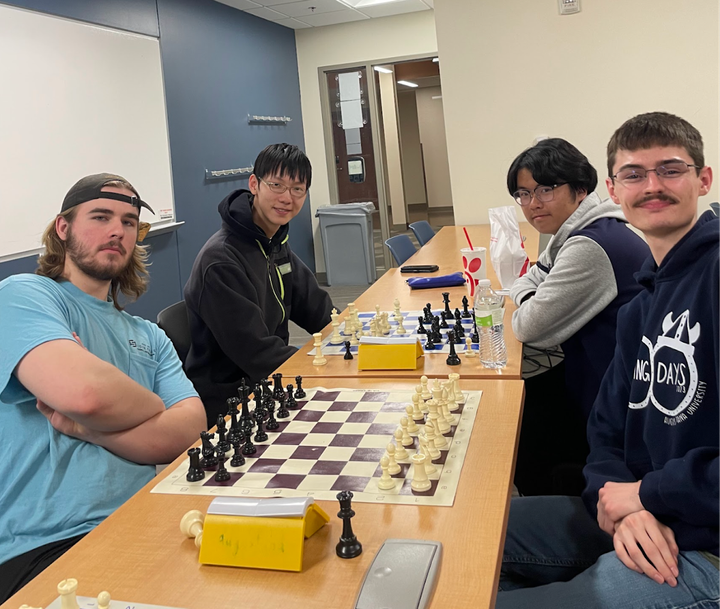Students share their experiences having COVID-19
Students returned to campus in August ready to come back to classes, but the spread of COVID-19 has led to more than 100 students contracting the virus in total and sent many more into quarantine for being exposed to someone who tested positive. These students have all had different experiences, due to flexibility with quarantine locations and the wide-ranging effects of the virus.
Senior Rachel Rosenbaum said she couldn’t wait to be back on campus, but it took a turn for the worst.
“It was kind of a bummer because I got my symptoms the very first day of class,” she said.
The weekend before returning to campus, she attended a wedding that exposed her to the coronavirus.
“I woke up like four times in the middle of the night with chills, fever, body aches, headache — terrible symptoms,” Rosenbaum recalled.
Senior Will Olson had a similar experience.
“I had about every symptom but loss of taste and smell,” he said. “I usually don’t get headaches, but my symptoms started with migraines, so I knew something was up.”
Olson was playing summer baseball in Macon, Georgia, when he tested positive.
Alternatively, junior Ashleigh Aarbo’s roommate was the one who contracted COVID-19. Due to this, everyone in Aarbo’s off-campus house had to quarantine. Aarbo mentioned that she had a sore throat and a runny nose, but she had trouble figuring out if she actually had COVID-19.
“I have sinus allergies, so I just feel like that all the time. So I never know if it’s something I have to go get checked out or get tested for,” she said.
Aarbo tested negative soon after.
Administration has asked students to inform them if they contract the virus or come in close contact with someone who has. “I called this number that someone gave me, and I told them that I had COVID,” Rosenbaum said. “Then the Augie nurse reached out to me and would give me a couple phone calls every few days and check in on me.”
She says they did a great job making sure she had a place to stay and that someone was taking care of her.
Although Aarbo had less severe symptoms, she didn’t get contacted as regularly. She said, “I got a text once checking in.”
Additionally, it was a difficult process for Aarbo from the start. She tried to contact the administration to tell them that she and her roommates were going to get tested and quarantine, but she couldn’t get through easily.
“We had to call campus clinic to set up testing,” she said. “Then, we had to try and call the dean of students [office] to tell them we had pending tests, but it was really hard to get in communication with anyone because they only have one person doing it all or something.” While the students waited for their results, they had to quarantine.
Olson’s quarantine was different because he was across the country.
“I was staying with a host family, so I was feeling pretty guilty about bringing COVID into their house,” Olson said. “I worked it out so I could stay in their guest bedroom and use a bathroom away from them until I recovered.”
Similarly, Aarbo said she stayed in her house for the full 10 days that were advised.
“I’ve been in my room pretty much,” she said. “Everyone’s just been in their rooms.”
Despite being quarantined for 10 to 14 days, some students say they had a great experience with classes and their professors.
“I feel like my professors have definitely handled the situation well, probably most out of everyone,” Aarbo said. “They really accommodated well with us.”
Rosenbaum shared a similar experience, saying, “The professors were really great about organizing stuff with me, giving me my assignments, making sure I was clear on everything and answering all my questions, which was awesome.”
Luckily, all of them have recovered since then and are back on campus enjoying the fall semester. But some still had a few continuing symptoms.
“I had a lingering cough for a few weeks,” Olson said.
“I took it really easy getting back into physical activity because I was of my feet for about three weeks. The cough went away after about two or three weeks.”
Rosenbaum said that she recovered quickly. She had fevers for about a week and a lingering cough soon after, but she felt better almost overnight.
“It was almost like a switch,” Rosenbaum said. “It turned from being really terrible and I was miserable Wednesday, to Thursday and Friday [when] I was like ‘oh I’m like a whole new woman.’ I was totally healthy again.”
When asked, none of the Augustana students mentioned having to get tested again before returning to campus. Although this was the case, Olson decided to get tested again.
“I got tested again just to make sure I wasn’t still contagious so I could come
home and see my family,” Olson said.
Having the students quarantine helped slow the spread of the virus, but some of them expressed difficulties that they were experiencing.
Aarbo said she was having some technical difficulties. “Either our Wi-Fi will be weird, or the school’s Wi-Fi will be weird,” she said. “A lot of times on Zoom it’s muffled voices in the background or the professor’s mic is being
weird.”
Now that they have experienced the severity of COVID-19, they know the importance of taking the necessary measures to prevent the spread of the virus.
“It was the most sick I have ever been my whole life,” Rosenbaum said. “I’m a nursing major, so I know the seriousness of the disease and obviously respect social distancing and masking.”
Similarly, Aarbo mentioned that not being able to go anywhere “sucked.”
“Being cooped up in your house for two weeks is just not fun,” she said.
Olson said, “I definitely don’t want to get it again. I have immunity for a couple more months from COVID, so I am not too worried about getting it again in the short term. I do think it should be taken seriously because
while you may not have symptoms, you still have to be quarantined for two weeks.”
The administration asks that students social distance, wear masks whenever possible and frequently wash hands to combat the virus.



